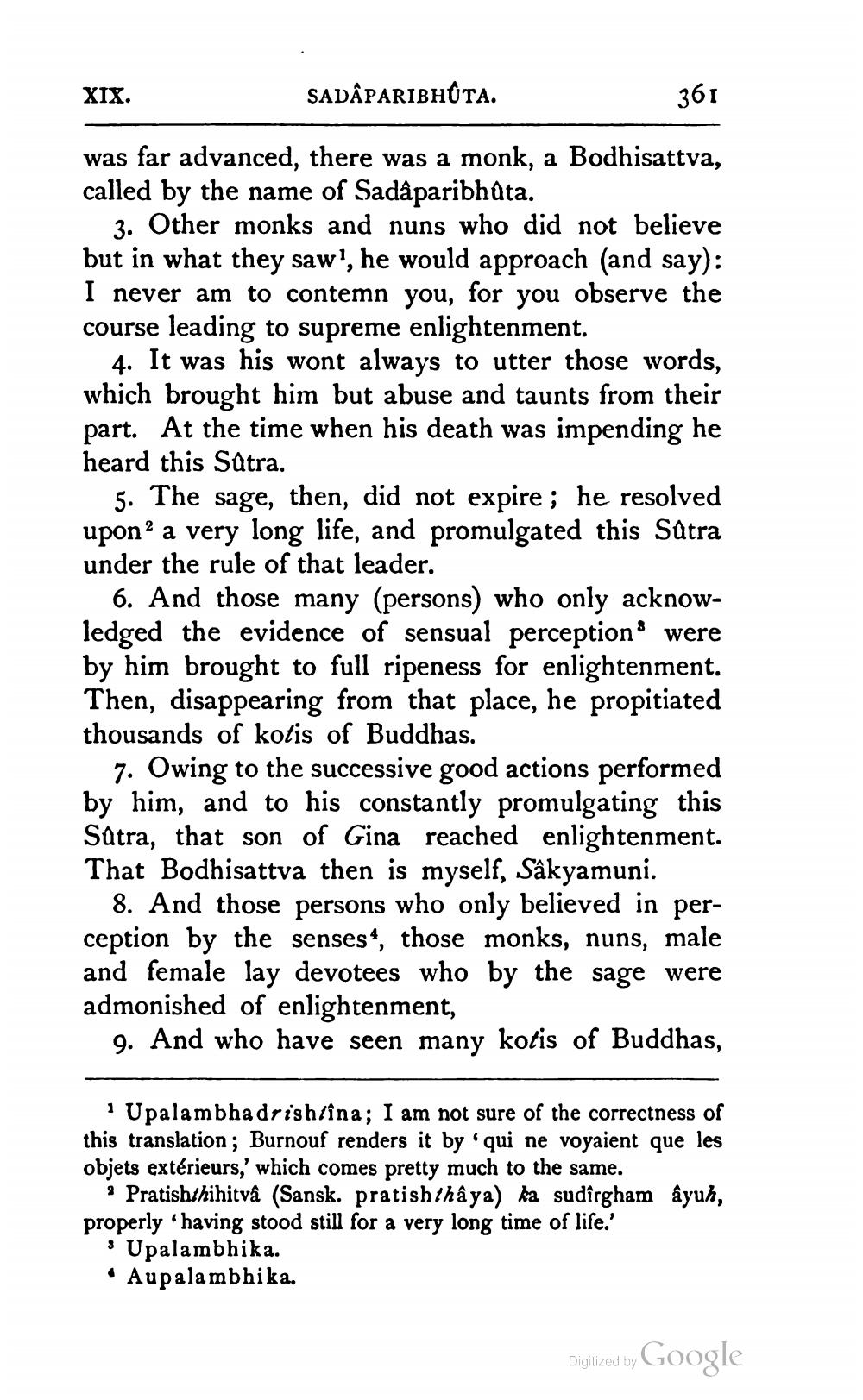________________
XIX.
SADÂPARIBHUTA.
361
was far advanced, there was a monk, a Bodhisattva, called by the name of Sadâparibhàta.
3. Other monks and nuns who did not believe but in what they saw", he would approach (and say): I never am to contemn you, for you observe the course leading to supreme enlightenment.
4. It was his wont always to utter those words, which brought him but abuse and taunts from their part. At the time when his death was impending he heard this Satra.
5. The sage, then, did not expire ; he resolved upona a very long life, and promulgated this Satra under the rule of that leader.
6. And those many (persons) who only acknowledged the evidence of sensual perception' were by him brought to full ripeness for enlightenment. Then, disappearing from that place, he propitiated thousands of kotis of Buddhas.
7. Owing to the successive good actions performed by him, and to his constantly promulgating this Satra, that son of Gina reached enlightenment. That Bodhisattva then is myself, Sâkyamuni.
8. And those persons who only believed in perception by the senses“, those monks, nuns, male and female lay devotees who by the sage were admonished of enlightenment,
9. And who have seen many kotis of Buddhas,
i Upalambhadrishtina; I am not sure of the correctness of this translation ; Burnouf renders it by 'qui ne voyaient que les objets extérieurs,' which comes pretty much to the same.
Pratishthihitvå (Sansk. pratishthâya) ka sudîrgham ayuh, properly 'having stood still for a very long time of life.'
: Upalambhika. • Aupalambhika.
Digitized by Google




